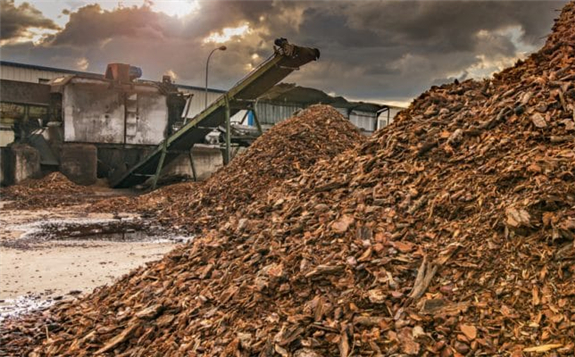Coega Biomass Centre will rehabilitate the biomass pellet production plant in Port Elizabeth, South Africa. Coega Biomass Centre is a joint venture between Hive Energy, iLive Sustainable Development and Partners for Innovation. The plant was acquired from Industrial Development Corporation (IDC).

The biomass pellet plant in Port Elizabeth will again provide environmentally friendly fuels. This will be thanks to the Coega Biomass Centre, which has just been established as a partnership between Hive Energy, iLive Sustainable Development and Partners for Innovation. Coega’s main mission is to restart the Port Elizabeth biomass pellet plant.
But the new company will first have to renovate the plant, which will produce pellets from non-native forests and “destructive invasive vegetation, restoring native vegetation, improving water supplies and providing a cleaner fuel to replace dirty charcoal, charcoal and anthracite (rock)”. The operation will be financed by Hive Energy, which participated in the acquisition of the plant.
“The new venture aims to illustrate the viability of the parties’ innovative approach to establishing sustainable biomass supply chains that have a positive environmental impact and open up more end-uses to the global market,” explains Partners for Innovation, another shareholder of Coega Biomass Centre.
Diversification of production
The biomass plant that Coega Biomass Centre wants to re-establish will supply a diverse range of ecological fuels, including pellets for domestic boilers for heating and domestic cooking, as well as specific products for industrial ovens or the production of steam and electricity.
Prior to its sale in 2015 by the Industrial Development Corporation (IDC), the biomass pellet plant had a capacity of 100,000 tonnes per year. After its 9-month renovation, the facility will be capable of supplying 120,000 tonnes of white pellets per year. A quantity of fuel that could avoid the emission of 200,000 tonnes of CO2 (coal equivalent) per year.
But Coega Biomass Centre (CBC) does not intend to be satisfied with the plant’s traditional production. The buyer “is also conducting a feasibility study to introduce new drying and roasting technologies to produce black pellets. The range of raw materials used to produce black pellets is wide and allows for the valorisation of biomass residues – such as forest residues that would otherwise be left to rot in the plantations, producing methane which has a very high impact on greenhouse gases,” explains Partners for Innovation.
This article is reproduced at www.afrik21.africa